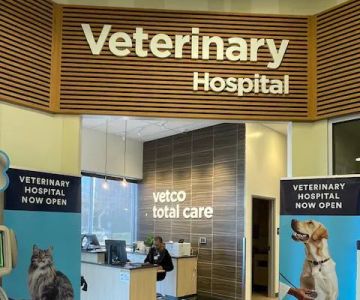Are Veterinary Bills Taxable in Kentucky? Understanding Tax Laws for Pet Care Services
- Tax Laws in Kentucky and Veterinary Bills
- Veterinary Services Tax Exemption
- When Veterinary Bills Are Taxable in Kentucky
- Real-Life Example: Veterinary Bills and Taxation
- What Kentucky Pet Owners Need to Know
Tax Laws in Kentucky and Veterinary Bills
If you're a pet owner in Kentucky, you might have wondered: "Are veterinary bills taxable in Kentucky?" The answer depends on the type of service being provided. Kentucky tax laws, like those in many other states, classify certain services as taxable, while others are exempt. Understanding these laws can help you better plan for the costs of pet care and potentially save money in the long run. In this article, we’ll break down Kentucky’s tax laws related to veterinary services and what they mean for you as a pet owner.
Veterinary Services Tax Exemption
In Kentucky, most veterinary services are not taxable. Veterinary services provided for the treatment of animals—whether for regular check-ups, surgeries, or emergency care—are typically exempt from sales tax. This is great news for pet owners because it means that the vast majority of services you receive at the vet’s office, from routine vaccinations to more complicated procedures, will not include any additional tax.
However, it's important to note that certain ancillary products or services related to veterinary care may be taxable. These include items such as pet food, grooming services, and certain pet supplies. As a result, pet owners may find that while the cost of medical treatments or check-ups remains untaxed, some other pet-related expenses may still be subject to sales tax.
When Veterinary Bills Are Taxable in Kentucky
While most veterinary services in Kentucky are tax-exempt, there are situations where veterinary bills may be taxable. For instance:
- Sale of Pet Products: Items such as pet food, toys, grooming supplies, and medications are typically subject to sales tax in Kentucky. These products are classified as tangible personal property, and as such, they are taxable.
- Grooming Services: Grooming services for pets, including baths, haircuts, and nail trims, are considered taxable services. Even though these services are often performed at veterinary clinics, they are treated differently from medical treatments.
- Non-Medical Procedures: If a procedure is deemed to be for cosmetic purposes rather than medical treatment, it may be taxable. For example, elective surgeries that are not medically necessary might fall into this category.
It’s essential to understand the distinction between medical and non-medical services, as this can directly affect the taxability of your bill. For instance, while an emergency surgery for your pet would typically be tax-exempt, an elective cosmetic procedure may not be. If you're unsure about what’s taxable, it's always a good idea to ask your veterinarian’s office for clarification on their pricing and tax policies.
Real-Life Example: Veterinary Bills and Taxation
Let’s take a real-life example to illustrate how veterinary bills can be taxable in Kentucky. Sarah, a Kentucky pet owner, took her dog Max to the vet for his annual check-up. The cost of the check-up, which included a physical exam, vaccinations, and some routine blood work, was tax-exempt because it was considered a necessary medical treatment.
However, during the visit, Sarah also purchased a new set of flea medications and a grooming service for Max. The flea medications, which were classified as a product, were taxable, and so was the grooming service. As a result, Sarah’s final bill included tax on these additional items, even though the medical treatment itself was exempt.
This example highlights the importance of understanding what is taxable in a veterinary bill. While medical services are generally exempt from tax, pet owners should be aware that products and non-medical services may still be taxed.
What Kentucky Pet Owners Need to Know
As a pet owner in Kentucky, it's important to be aware of the potential tax implications when you bring your pet to the veterinarian. Here are some key points to keep in mind:
- Most Veterinary Services Are Tax-Exempt: In Kentucky, the cost of medical services for pets is typically exempt from sales tax. This includes services like vaccinations, surgeries, and emergency care.
- Products and Grooming Services Are Taxable: Pet products such as food, grooming services, and certain medications are taxable. Be sure to ask about the costs of these items so you can be prepared for the tax charges.
- Stay Informed About Taxable Services: Some services, such as elective procedures, may be taxable. It's a good idea to ask your veterinarian’s office for a breakdown of your bill to understand what is and isn't taxable.
- Consider Tax Deductions for Medical Care: In some cases, you may be able to deduct the cost of veterinary bills as medical expenses for tax purposes, especially if your pet is considered a service animal. Consult with a tax professional to see if you qualify for any deductions related to your pet’s medical care.
Understanding Kentucky’s tax laws regarding veterinary services can help you better manage your pet care costs and avoid surprises when it’s time to pay the bill. If you’re ever unsure about what’s taxable, don’t hesitate to ask your veterinary clinic for clarification on their charges and tax policies.
If you're looking for a reliable veterinary service or want to learn more about the potential costs associated with pet care in Kentucky, check out HeartCare Hub for trusted recommendations and expert advice. By staying informed, you can make the best decisions for your pet's health and your wallet.











